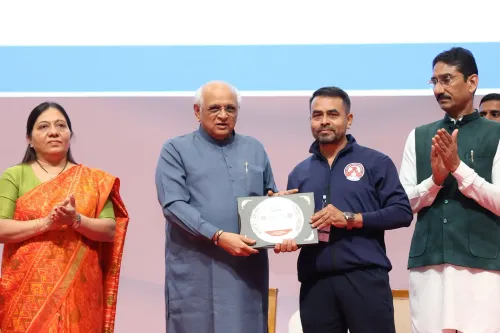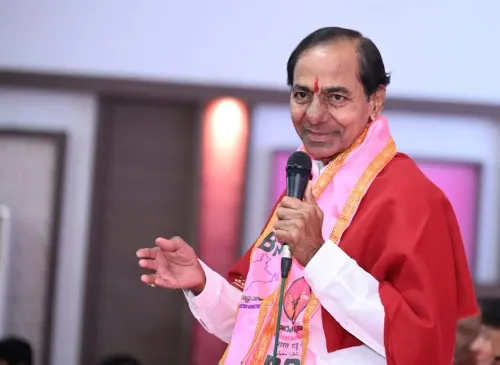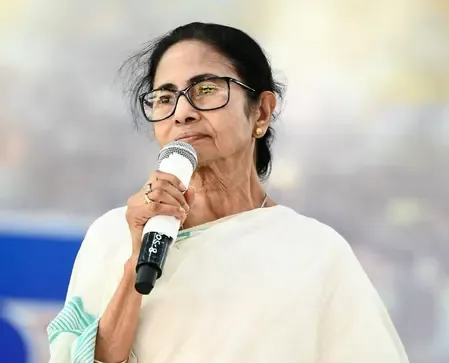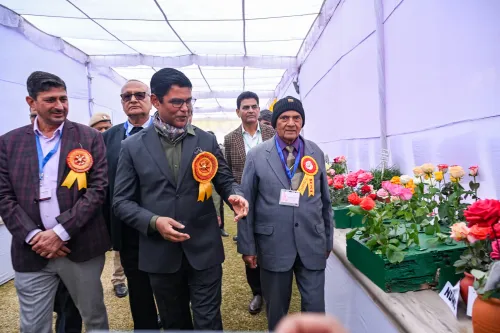Why Did CPI Condemn the 'Extrajudicial Killing' of a Senior Maoist Leader in Chhattisgarh?
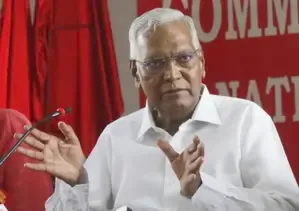
Synopsis
Key Takeaways
- The CPI strongly condemned the extrajudicial killing of a senior Maoist leader.
- Concerns raised about the state’s commitment to democratic norms.
- Call for an independent judicial inquiry into the incident.
- Adivasi communities are often marginalized and caught in conflict.
- Significant cache of weapons was recovered during the operation.
Raipur, May 21 (NationPress) The Communist Party of India has strongly condemned the brutal killing of a senior Maoist leader along with numerous Adivasis in Chhattisgarh.
“This incident is yet another example of extrajudicial violence, executed under the guise of counterinsurgency efforts. The persistent reliance on deadly force instead of lawful apprehension raises significant concerns regarding the State's dedication to democratic principles and the rule of law,” stated D. Raja, General Secretary of the Communist Party of India and former Rajya Sabha member, in a statement shared on the social media platform X.
If intelligence agencies knew about the leader’s location, why was a lawful arrest not attempted? Why was constitutional due process so openly ignored?” he questioned.
In a notable achievement against left-wing extremism, security forces in Chhattisgarh successfully neutralized Nambala Keshav Rao, also known as Basavaraju, the General Secretary of the outlawed Communist Party of India (Maoist). This operation, carried out in the dense forests of Abujhmad, represents a significant milestone in the ongoing struggle against Naxal insurgency.
“These killings highlight a disturbing trend of State violence and reveal the ongoing marginalization of Adivasi communities in the area. Time and again, these communities find themselves trapped in a conflict they did not start, regarded as collateral damage in operations characterized by impunity,” D. Raja remarked.
The CPI is calling for an independent judicial investigation into this incident and the entirety of Operation Kagar. The people of Chhattisgarh—and indeed the entire nation—deserve transparency and accountability, he emphasized.
“A democratic society cannot permit the State to assume the roles of judge, jury, and executioner. Justice must triumph, and the dignity of Adivasi lives must be safeguarded. The CPI urges all democratic and progressive voices to rise against this gross violation of rights and express solidarity with the people of Chhattisgarh,” the CPI leader concluded in his statement.
Following a fierce exchange of gunfire, the forces successfully eliminated 27 Maoists, including Basavaraju. A large cache of weapons, including AK-47 rifles, SLRs, INSAS rifles, carbines, and other arms and ammunition, was seized from the location.
Preliminary inspections indicate that several other senior Maoist leaders may have been killed or severely injured during the operation.
Basavaraju, approximately 70 years old, resided in the Srikakulam district of Andhra Pradesh, as reported by police officials.
He held several critical positions within the CPI (Maoist), acting as General Secretary, Chief of the Central Military Commission, Polit Bureau Member, and Central Committee Member. His leadership was pivotal in coordinating Maoist operations across various regions.


